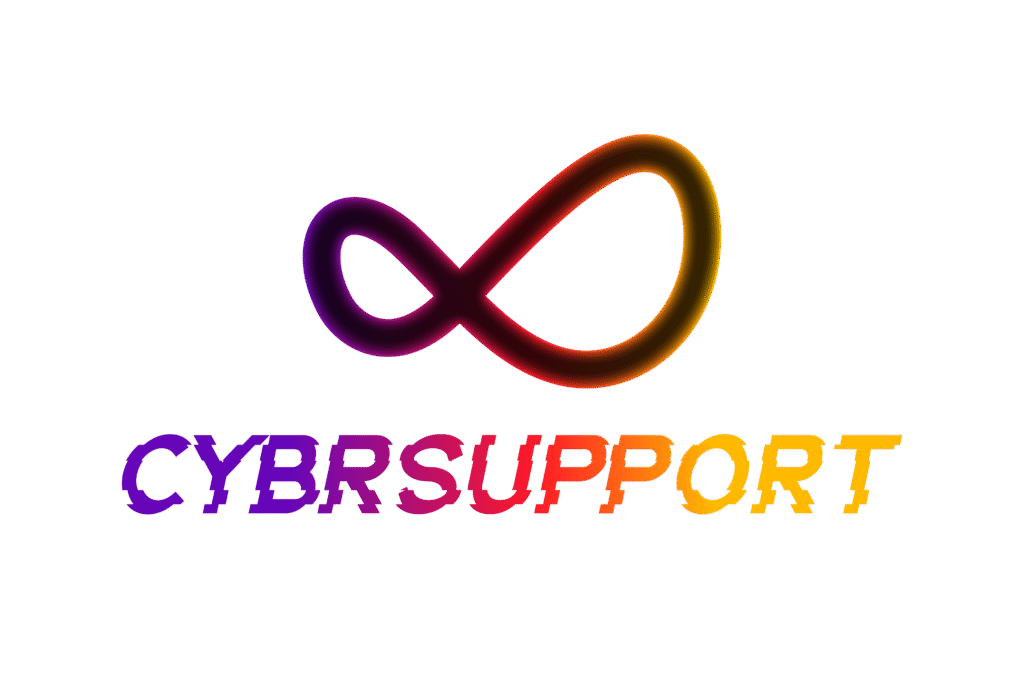IT Security
In today’s digital-first world, IT security is not optional – it’s essential. Businesses of all sizes face ever-evolving cyber threats, from phishing and malware to data breaches and ransomware attacks.
Without the right security measures in place, your organisation is exposed to significant operational, financial, and reputational risks. Robust IT security protects not only your systems and data, but also your customers, employees, and business continuity.
IT Security for Your Business
Essential Layers of Business IT Security
Modern IT security is a multi-layered approach. No single solution offers total protection, so businesses must deploy a comprehensive security strategy tailored to their risk profile and operational needs.
Antivirus & Endpoint Detection and Response (EDR)
Basic antivirus software is no longer sufficient on its own. Today, advanced Endpoint Detection and Response (EDR) solutions are required to monitor, detect, and neutralise sophisticated threats in real time. EDR tools go beyond traditional antivirus by offering behavioural analysis, threat hunting, and rollback capabilities to mitigate the impact of attacks.
Managed Rapid Event Detection (Managed RED)
A Managed Security Operations Centre (SOC) provides round-the-clock threat detection, incident response, and system monitoring. This means your business is protected at all times, even outside of working hours. With 24/7 oversight from a professional SOC team, threats can be swiftly identified and contained before they cause damage.
Business-Grade Firewalls
Firewalls are the gatekeepers of your network. A properly configured business firewall controls incoming and outgoing traffic based on predefined security rules. Modern firewalls can also include intrusion prevention, application control, and VPN services, ensuring secure remote access and strong perimeter defence.
DNS Filtering
DNS filtering blocks access to malicious or inappropriate websites by intercepting DNS queries. This prevents employees or systems from unintentionally visiting harmful websites or falling victim to phishing attacks. It is a simple yet highly effective layer of protection that improves network hygiene and compliance.
Email Security: DKIM, DMARC, and SPF
Email remains one of the most exploited attack vectors. Implementing DomainKeys Identified Mail (DKIM), Domain-based Message Authentication, Reporting and Conformance (DMARC), and Sender Policy Framework (SPF) helps verify that emails are genuinely from your domain. This reduces the likelihood of spoofing, phishing, and impersonation attacks reaching your users or your customers.


Aligning with Security Standards
Adhering to recognised industry standards demonstrates a commitment to best practices and data protection. It also builds trust with clients, partners, and regulators. All professional individuals and small businesses should align themselves to these best practices to help minimise risks and cyber attacks.
Cyber Essentials & Cyber Essentials Plus
A government-backed scheme, Cyber Essentials sets out a baseline of technical controls to protect against common cyber threats. Cyber Essentials Plus includes a hands-on technical verification process, offering further assurance of your security posture.
ISO 27001 – Information Security Management
ISO 27001 is the international standard for information security management systems (ISMS). It provides a systematic approach to managing sensitive data, including risk management, policies, and continual improvement practices. Achieving this certification proves your organisation takes information security seriously.
Our Comprehensive Managed IT Services

24/7 IT Support & Monitoring
Our team provides round-the-clock monitoring and support to ensure your IT systems are always running smoothly. Whether it’s a minor technical glitch or a major system failure, we are always available to resolve issues quickly and efficiently.

Cyber Security & Threat Protection
Security is at the heart of our Managed IT Services. We implement business-grade antivirus, firewalls, and endpoint detection and response (EDR) solutions to keep your business safe from cyber threats, including malware, phishing, and ransomware.

Cloud & On-Premise
IT Solutions
Whether you prefer cloud-based solutions or on-premise setups, we help you choose the best infrastructure for your needs. We specialize in secure storage solutions, including Synology NAS, and provide tailored cloud services that ensure easy access and data protection.

Data Backup &
Disaster Recovery
Data loss can be catastrophic for any business. Our managed backup solutions ensure that your data is securely stored and easily recoverable in case of accidental deletion, hardware failure, or cyberattacks.
Why Choose Us?

Expert Technicians
Our team is trained to handle a wide range of devices including Windows and Mac with precision and expertise.

Fast Response Times
We know how important your IT and tech is. Our proximity allows us to provide quick onsite support when needed.

Affordable Pricing
We provide a clear quote, outlining the costs of parts and labour. There are no surprise charges or fees.

Customer Satisfaction
We prioritise excellent customer service and stand behind our work with pride.
Testimonials and reviews
our happy clients

“CybrSupport gave me a first class service setting up my PC and monitors for my home studio. No fuss and everything was tested thoroughly to make certain that I was happy with the result. Would have no hesitation in recommending this company for helpful support.“

Geoff
Leigh-on-Sea

“This is an excellent service provided by George and Joe. Very helpful ,prompt service and nothing was too much trouble for them. Professional and competent in their knowledge of the industry.”

Christine
Basildon
You deserve better than a ticket number and a 3-day wait
Whether you’re a freelance creative, a small business owner, or just someone tired of tech headaches, CybrSupport is the smarter, more human choice.


